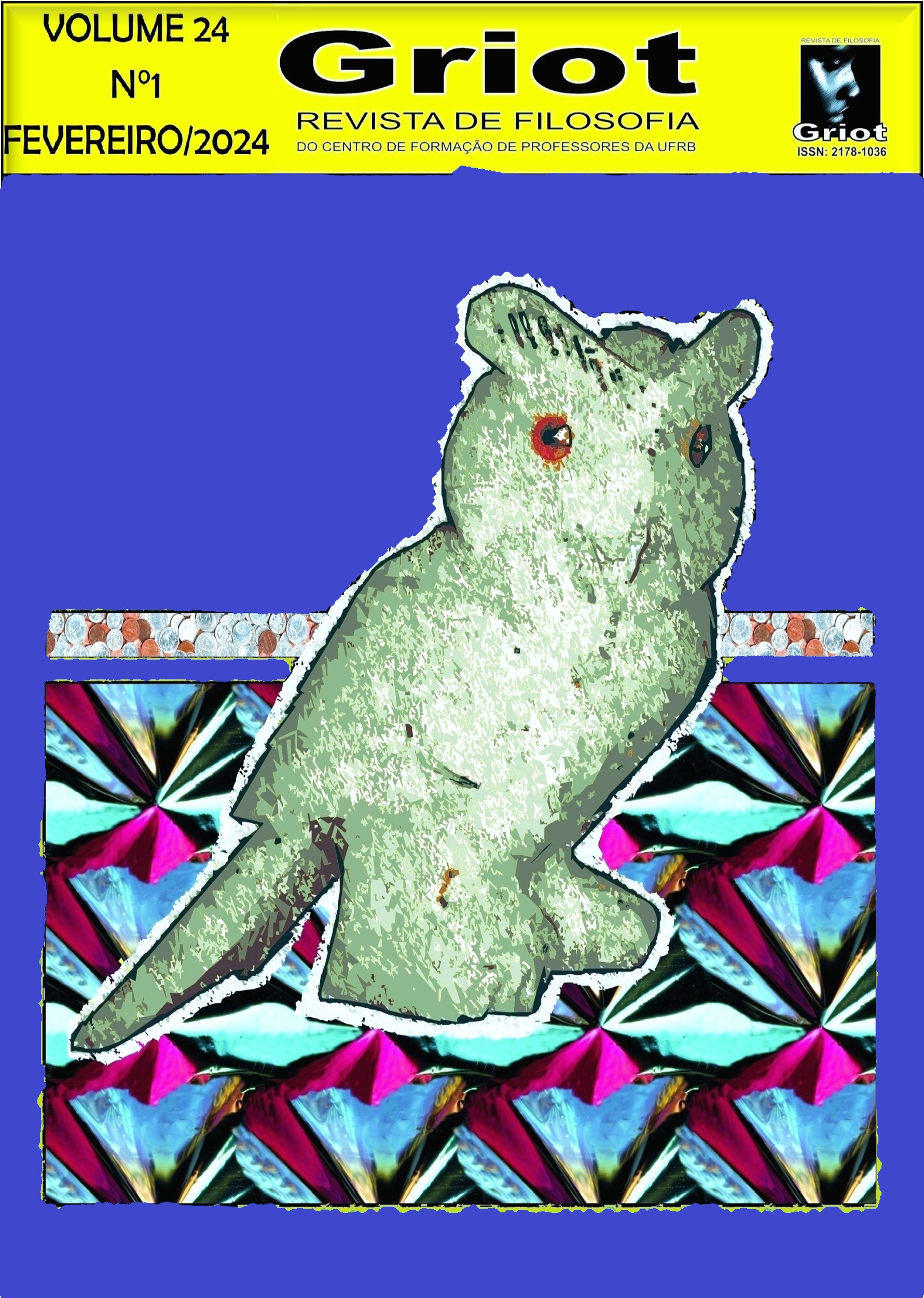The importance of existential feelings for the understanding of illness
DOI:
https://doi.org/10.31977/grirfi.v24i1.3595Keywords:
Emotion; Bodily Felling; Existential Feeling; Bodily Doubt; Illness.Abstract
Unlike emotions, existential feelings are not directed towards an object or specific situation, but are the affective background through which experience as a whole is structured. Furthermore, existential feelings are bodily feelings. In that vein, this paper aims to present the theory of existential feelings developed by Matthew Ratcliffe in Feelings of Being: Phenomenology, psychiatry and the sense of reality (2008) and its link to the concept of bodily doubt developed by Havi Carel in Phenomenology of illness (2016) in order to exhibit the importance of bodily feelings in understanding the experience of illness. This paper is divided into three sections: 1) Characterization of the nature of emotions and feelings; 2) Characterization of existential feelings based on the phenomenology of tactile experience, as well as the distinction between existential feeling, emotion and mood; 3) An analysis of the alteration of existential feelings by bodily doubt.
Downloads
References
CAREL, Havi. Phenomenology and its application in medicine. Theoretical Medicine and Bioethics, Berlin, v. 32, n. 1, p. 33-46, 2010.
CAREL, Havi. Illness, phenomenology, and philosophical method. Theoretical Medicine and Bioethics, Berlin, v. 34, n. 4, p. 345-357, 2013.
CAREL, Havi. Conspicuous, obstrusive and obstinate: A Phenomenology of the ill body. In: MEACHAM, Darian. (ed.). Medicine and society, new perspectives in continental philosophy, Berlin: Springer, 2015. p. 119-121.
CAREL, Havi. Phenomenology of illness. Oxford: Oxford University Press. 2016. 248 p.
CAREL, Havi. Pathology as a phenomenological tool. Continental Philosophy Review, Berlin, v. 54, p. 201-217, 2021.
DELANCEY, Craig. Commitment and attunement. Phenomenology and the Cognitive Sciences, Berlin, v. 13, n. 4, p. 579-594, 2014.
FREEMAN, Lauren. Toward a phenomenology of mood. The Southern Journal of Philosophy, Hoboken, v. 52, n. 4, p. 445-476, 2014.
FUCHS, Thomas. The phenomenology of affectivity. In: FULFORD, K. W. M.; DAVIES, Martin; GIPPS, Richard; GRAHAM, George; SADLER, John Z.; STANGHELLINI, Giovanni; THORNTON, Tim (ed.). The Oxford Handbook of Philosophy and Psychiatry, Oxford: Oxford University Press, 2013, p. 612-631.
GILARDI, Pillar. Heidegger: la pregunta por los estados de ânimo (1927-1930). México: Bonilla Artigas Editores, 2013. 204 p.
GUMBRECHT, Hans. U. Sintonia, ambiência, Stimmung: sobre um potencial oculto da literatura. Tradução de Ana Isabel Soares. Rio de Janeiro: Contraponto: Editora PUC Rio, 2014. 174 p.
HEIDEGGER, Martin. Ser e tempo. Tradução de Fausto Castilho. SP: Editora da Unicamp, Rio de Janeiro: Editora Vozes, 2012. 1199 p.
HEIDEGGER, Martin. Os conceitos fundamentais da metafísica: mundo, finitude, solidão. Tradução de Marco Antônio Casanova. 2 ed. Rio de Janeiro: Forense Universitária, 2015. 486 p.
JAMES. W. What is an emotion? Oxford Journal. Oxford University Press on behalf of the Mind Association: Vol. 9, No. 34, p. 188-205, abril de 1884.
RATCLIFFE, Matthew. The feeling of being. Journal of Consciousness Study, Exeter, v. 12, n. 8, p. 43-60, 2005.
RATCLIFFE, Matthew. Feeling of being: phenomenology, psychiatry and the sense of reality. Oxford: Oxford University Press. 2008. 320 p.
RATCLIFFE, Matthew. The phenomenology of existential feeling. In: FINGERHUT, Joerg.;
RATCLIFFE, Matthew. Existential feeling. In: SZANTO, Thomas; LANDWEER, Hilge (ed.). The Routledge Handbook of Phenomenology of Emotion, Abingdon: Routledge, 2020. p. 250-261.
REIS, Róbson R. A abordagem fenomenológico-existencial da enfermidade: uma revisão. Natureza Humana, São Paulo, v. 18, n. 1, p. 122-143, 2016.
REIS, Róbson R. Illness and generality. Analytica, Rio de Janeiro, v. 22, n. 2, p. 174-191, 2018.
REIS, Róbson R. Fenomenologia Hermenêutica e as noções de confiança e memória corporal na descrição da experiência da enfermidade. Prometheus, São Cristóvão, n. 33, p. 101-128, 2020.
SOLOMON, Robert. Emotions in phenomenology and existentialism. In: DREYFUS, Hubert L.; WRATHALL, Mark A. (ed.). A Companion to Phenomenology and Existentialism, Oxford: Blackwell Publishing, 2007. p. 291-309.
SVENAEUS, Fredrik. Naturalistic and phenomenological theories of health: Distinctions and Connections. In: CAREL, Havi; MEACHAM, Darian. (ed.). Phenomenology and Naturalism, Cambridge: Cambridge University Press, 2013a. p. 221-238.
THONHAUSER, Gerhard. Beyond mood and atmosphere: a conceptual history of the term Stimmung. Philosophia, Berlin, v. 49, n. 3, p. 1247-1265, 2020.
WEBERMAN, David. Heidegger and the disclosive character of the emotions. Southern Journal of Philosophy, Hoboken, v. 34, n. 3, p. 379-410, 1996.
Downloads
Published
How to Cite
Issue
Section
License
Copyright (c) 2024 Brenda Rossi Anhanha

This work is licensed under a Creative Commons Attribution 4.0 International License.
The authors who publish in Griot: Revista de Filosofia maintain the copyright and grant the magazine the right of first publication, with the work simultaneously licensed under the Creative Commons Attribution 4.0 International License, allowing sharing and adaptation, even for commercial purposes, with due recognition of authorship and initial publication in this journal. Read more...









































































